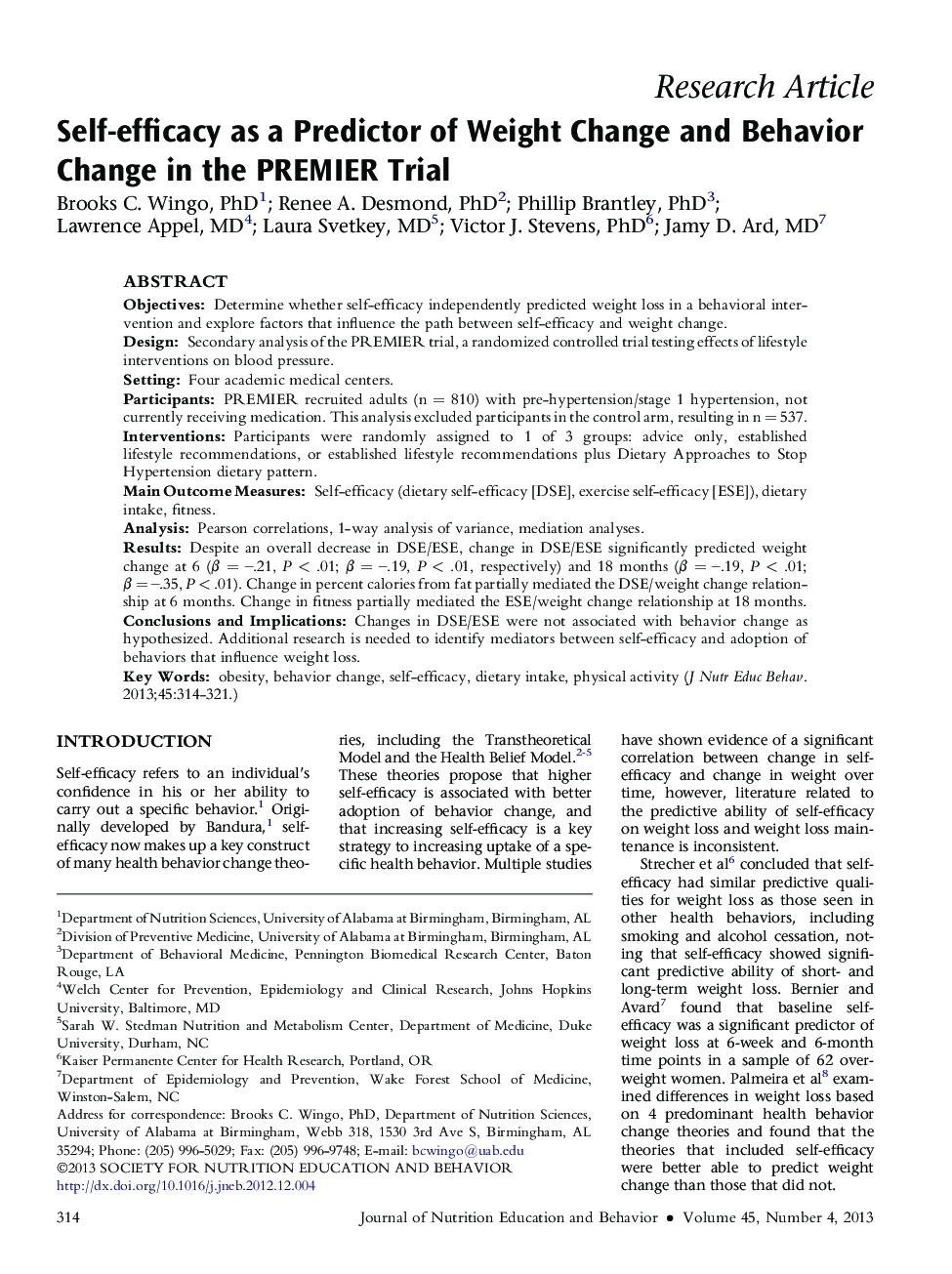| Article ID | Journal | Published Year | Pages | File Type |
|---|---|---|---|---|
| 361395 | Journal of Nutrition Education and Behavior | 2013 | 8 Pages |
ObjectivesDetermine whether self-efficacy independently predicted weight loss in a behavioral intervention and explore factors that influence the path between self-efficacy and weight change.DesignSecondary analysis of the PREMIER trial, a randomized controlled trial testing effects of lifestyle interventions on blood pressure.SettingFour academic medical centers.ParticipantsPREMIER recruited adults (n = 810) with pre-hypertension/stage 1 hypertension, not currently receiving medication. This analysis excluded participants in the control arm, resulting in n = 537.InterventionsParticipants were randomly assigned to 1 of 3 groups: advice only, established lifestyle recommendations, or established lifestyle recommendations plus Dietary Approaches to Stop Hypertension dietary pattern.Main Outcome MeasuresSelf-efficacy (dietary self-efficacy [DSE], exercise self-efficacy [ESE]), dietary intake, fitness.AnalysisPearson correlations, 1-way analysis of variance, mediation analyses.ResultsDespite an overall decrease in DSE/ESE, change in DSE/ESE significantly predicted weight change at 6 (β = –.21, P < .01; β = –.19, P < .01, respectively) and 18 months (β = –.19, P < .01; β = –.35, P < .01). Change in percent calories from fat partially mediated the DSE/weight change relationship at 6 months. Change in fitness partially mediated the ESE/weight change relationship at 18 months.Conclusions and ImplicationsChanges in DSE/ESE were not associated with behavior change as hypothesized. Additional research is needed to identify mediators between self-efficacy and adoption of behaviors that influence weight loss.
